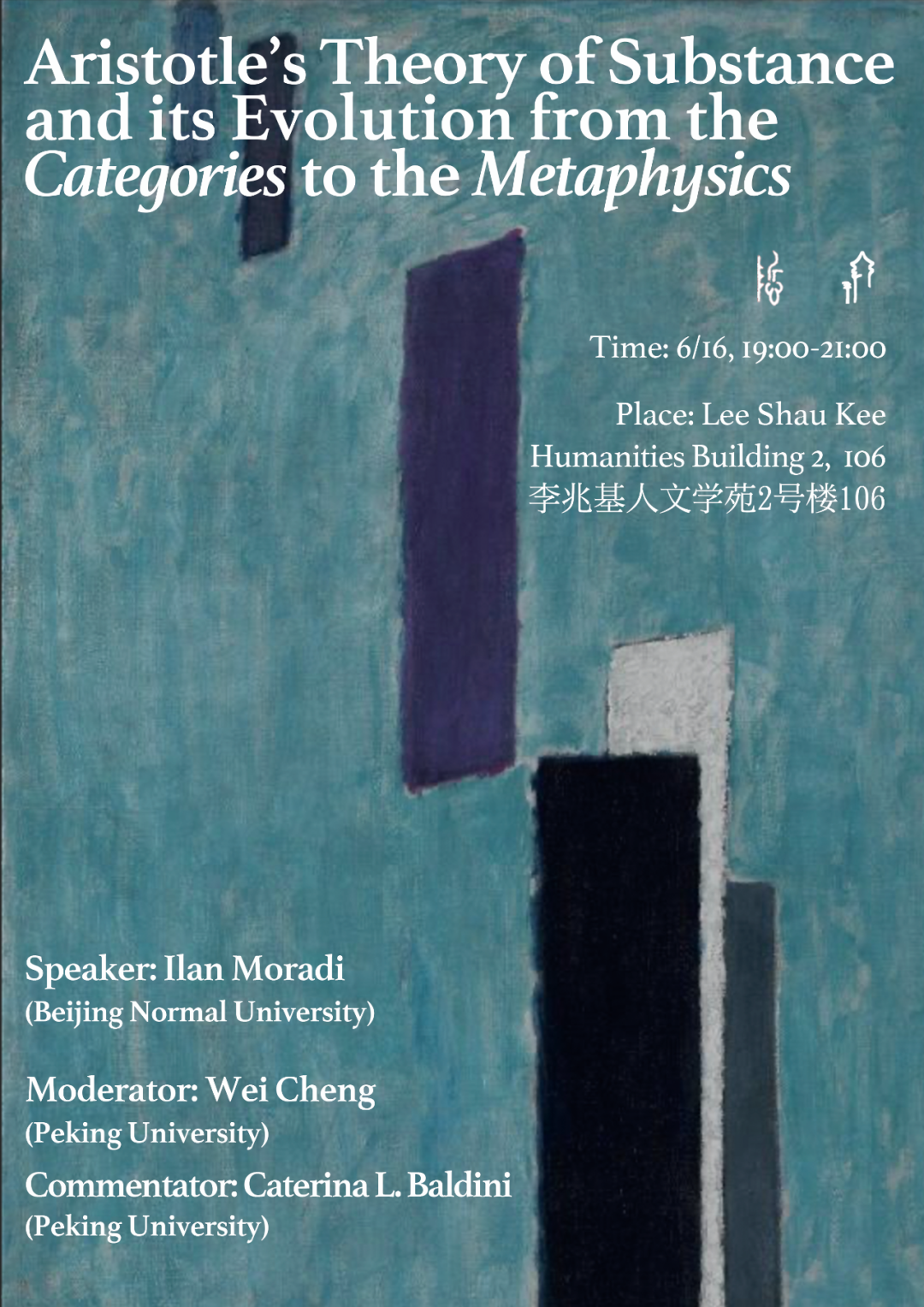Speaker: Ilan Moradi, Beijing Normal University
Time: 19:00-21:00, June 16, 2023, GMT+8
Venue: Lee Shau Kee Humanities Building 2, 106
Abstract:
In the Corpus Aristotelicum there are two different theories of substance which apply to the sublunary world. The first theory is found in the Categories and selects the individual concrete as a primary substance (πρώτη οὐσία). The second is found in the Metaphysics (mainly in book Z) and selects the Form (eἶdoV) and the Essence (τὸ τί ἦν εἶναι) as a primary substance. Most of the interpretations of modern Aristotelian scholarship claim an inconsistency. They suggest that if at all Aristotle has a theory of substance, then it is either the substance theory of the Categories or the one of the Metaphysics. These interpretations suppose that the theory of substance is applicable only to a single domain, namely to ontology, and that there can be only a single primary substance.
I argue that these suppositions are false. According to the new version of my evolution interpretation the two theories of substance are compatible with each other because each has a different purpose: The one of the Categories aims at giving an ontological explanation while the one of the Metaphysics (Z, 1-16) aims at relating the ontological explanation to epistemology. The primary substance in the Categories is the individual concrete due to its independent Subjecthood and is ontological while the primary substance in the Metaphysics is the Form-Essence and is determinative-epistemological.
The evolution principally lies in adding a new kind of substantiality in the Metaphysics where the Essence is considered as a substance due to its particularity (ἴδιος). The interpretation points out the major role of determination (ὁρίζεσθαι) in the substance theory of the Metaphysics and suggests the new domain of determinology which relates Aristotle's epistemology to his ontology.
Source: Department of Philosophy
